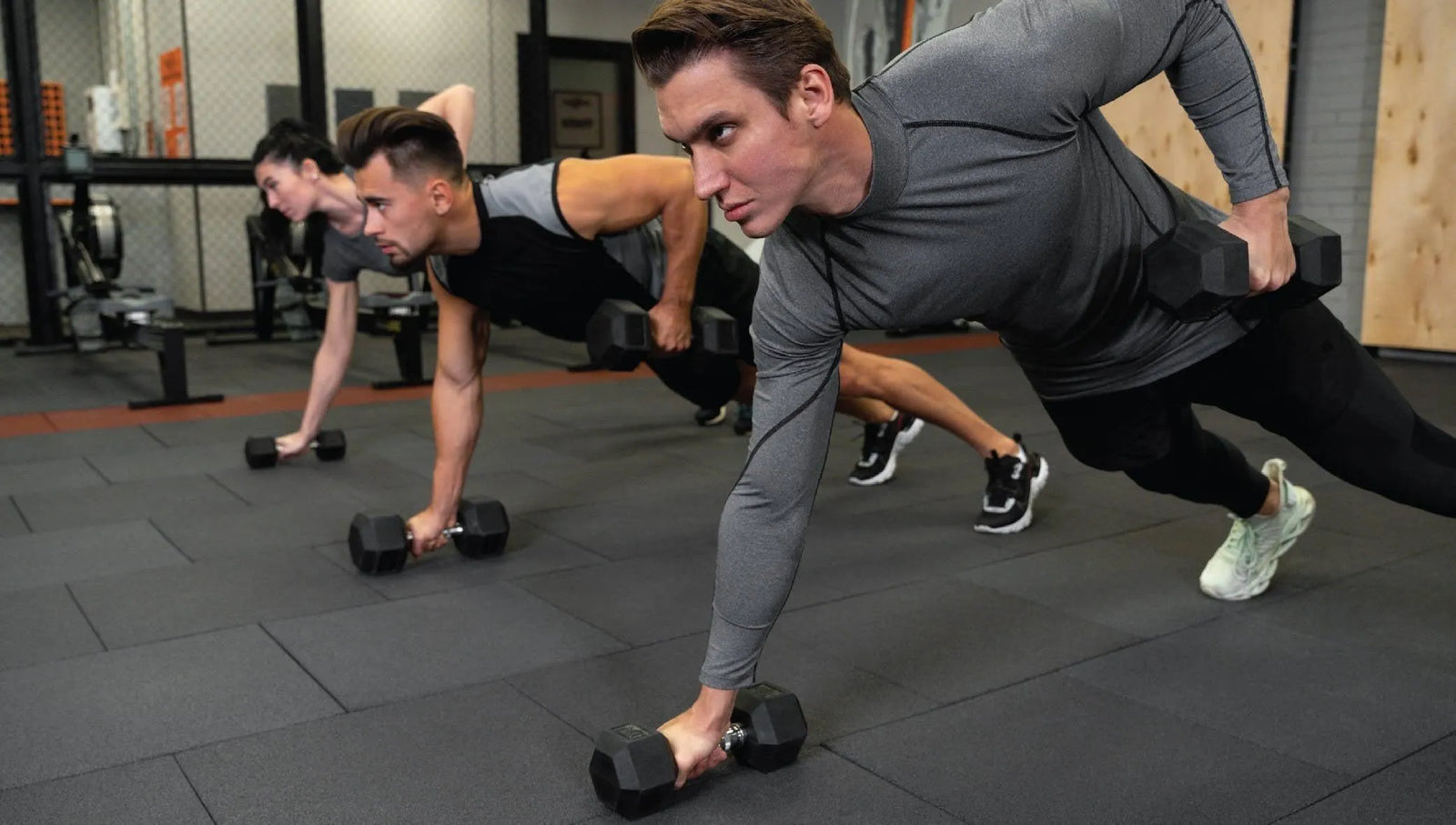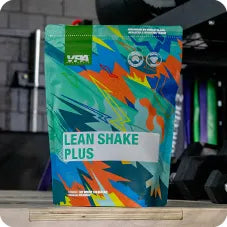Your Cart is Empty
I’m not bodybuilding so why do I need protein powder?
January 16, 2019 4 min read

Why do I need protein powder if I am not wanting to grow massive muscles? Well, the word protein comes from the Greek term proteios (“of the first rank”). Protein is made up of amino acids which play an essential role in practically every process in your body. It makes up about 50% of the organic material in the body and accounts for 17% of your body weight (in most people- excluding bodybuilders and athletes where this percentage increases). Therefore, any deficiency in protein will impact the way the body can function. The body can only make some protein itself and the rest must be obtained from a variety of food sources or protein supplements (these are classified as ‘essential’ amino acids). There are many symptoms which may be a sign of not getting sufficient protein. Below are 10 uses of protein and the associated symptoms that can arise from protein deficiency.
1. Growth and maintenance of body tissues
There are 4 types of tissue classifications; muscle, epithelial, nervous and connective. Muscle tissue is obvious and what we all immediately think of when we mention protein. However, muscle tissue is also found in the heart and digestive tract which assists in pumping the blood around the body and moving food through the digestive tract.
Deficiency symptoms: Difficulty building muscle and strength, joint and muscle pain, lack of growth in children
2. Maintains healthy organs (eg. heart and liver)
Being low in protein can cause your organs to reduce in size and the body starts to slow down.
Deficiency symptoms: Feeling sluggish, low energy, fatigued easily, high blood pressure or cholesterol (from eating more carbs and fats to make up for the lack of protein being consumed)
3. Aids blood clotting
Deficiency symptoms: Slow wound healing, excessive bleeding from simple cuts (however this can be affected by numerous other factors too)
4. Balances hormones
Maintains adequate levels of hormones in the body which are signalling messengers aimed to help regulate bodily functions (eg. insulin which maintains stable sugar levels in the body)
Deficiency symptoms: Moody, mood swings, development of diabetes, constantly feeling hungry, anxiety
5. Maintains healthy skin, nails and hair
Skin cells only have a life span of around 30 days and new cells are constantly reformulating underneath. This process requires protein to assist the cells growing and maturing. Protein also supports longevity by helping the body synthesis glutathione (an antioxidant) which removes carcinogens that age you. Finally, hair and nails are made up of keratin which is a strong protein. Hence, sufficient protein is required to maintain strong and healthy hair and nails.
Deficiency symptoms: Changes is skin colour, flaky or thin skin, brittle hair and nails, rusty texture to skin hair and nails
6. Balances fluid levels in the body
Without sufficient protein the blood, fluid cannot be pulled out of the cells into the blood resulting in swelling.
Deficiency symptoms: Oedema (swelling in ankles), diarrhoea, bloating
7. Transports essential nutrients, vitamins and oxygen around the body
Some proteins make up important structures such as haemoglobin which help carry oxygen in the blood to body from the lungs. They are also required to remove some toxic waste products from cells that need to be excreted.
Deficiency symptoms: Lack of energy, cramping, skin discolouration
8. Vision
The lens of the eye contains 36% protein and helps maintain its structure. Protein is also required in the metabolism process of vitamins essential to maintain clear vision.
Deficiency symptoms: Blurred or altered vision (if this is the case book in to your optometrist)
9. Nerve function and memory
To have efficient signalling in the body including signals in the brain, the body requires protein assist nerves to function effectively.
Deficiency symptoms: Poor concentration, trouble learning, slow movements and reaction time
10. Immunity
Defensive proteins help identify ‘intruders’ in the body and help fight and remove them. This helps us from becoming sick all the time.
Deficiency symptoms: Constantly displaying symptoms of a cold or flu
So why do I need protein powder? Well, overall it is obvious that absolutely everyone requires sufficient protein no matter who you are and what your goals are. It doesn’t mean you have to eat ten steaks a day, just simply add in a VPA® protein shake or bar into your daily food regimen. However, it is possible to eat too much protein as well which can inure your kidneys especially if you are not consuming enough water. If you are unsure of the right amount of protein for you, use a protein calculator or talk to a dietitian or personal trainer for some advice.
References for Why do I need protein powder?
- Fatt, I. and B.A. Weissman, Physiology of the eye: an introduction to the vegetative functions. 2013: Butterworth-Heinemann.
- McLaren, D., Malnutrition and the Eye. 2014, New York: Elsevier.
- Neklyudov, A., A. Ivankin, and A. Berdutina, Properties and uses of protein hydrolysates (Review). Applied Biochemistry and Microbiology, 2000. 36(5): p. 452-459.
- Healthline Editorial Team. Kwashiorkor. 2015 26/07/2016]; Available from: http://www.healthline.com/health/kwashiorkor#Symptoms3.
- Sadava, D.E., et al., Life: the science of biology. Vol. 2. 2009: Macmillan.
- Widmaier, E., H. Raff, and K. Strang, Vander’s human physiology: the mechanisms of human body function. New York: McGraw-Hill, 2006.
Also in Training

Boosting Your Health: Understanding Aerobic and Anaerobic Metabolism
July 22, 2024 4 min read
Learn about the key differences between aerobic and anaerobic metabolism, and how to optimize your workouts for better health and fitness. Discover the benefits and performance-boosting potential of combining these two metabolic powerhouses.
Read More
Smash Through the Wall: How to Increase Your Lactate Threshold for Running Glory
July 08, 2024 4 min read
Learn science-backed strategies to boost your lactate threshold, enhance running performance, and achieve your fitness goals. Discover expert tips and techniques here.
Read More
The Ultimate Guide to Cross-Training
July 01, 2024 5 min read
Learn about cross-training, crafting a plan, tailoring for different fitness goals, and activities beyond the gym. Discover the ultimate fitness guide at VPA.
Read More Recent Articles
- Boosting Your Health: Understanding Aerobic and Anaerobic Metabolism
- Smash Through the Wall: How to Increase Your Lactate Threshold for Running Glory
- The Ultimate Guide to Cross-Training
- Embrace the Cold: How to Stay Active and Healthy Throughout Winter Down Under
- What is Hyrox?
- Mastering the Pull-Up
- Building a Champion: Why Cardio and Strength Training are Your Fitness Dream Team
- Beyond the Six-Pack: Building a Strong Core for Everyday Life
- Routine and Discipline – The Backbone of Fitness
- Calisthenics for Beginners
${{amount}}













